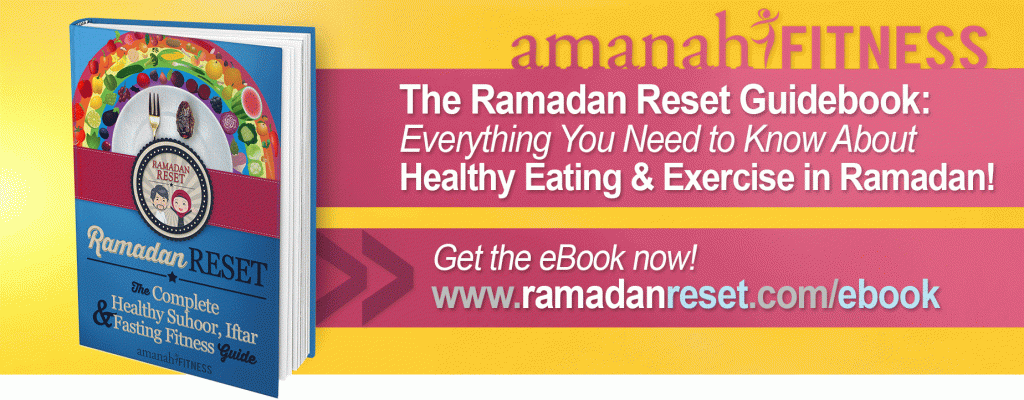10 May How to Nap Properly in Ramadan
How to Nap Properly in Ramadan!
SUMMARY: One way to minimize sleep debt during Ramadan is by following the prophetic sunnah of napping. However, not all naps are the same. This article discusses that naps should ideally be taken earlier during the day, scheduled consistently, SHORT in duration, taken in darkness and should be followed by movement.
When complaining about a lack of sleep in Ramadan, most Muslims immediately begin discussing the benefits of naps as a means of mitigating sleep-deprivation. It is true that naps, when done right, can supplement your sleep quality and help repay sleep debts. In fact, The Prophet ﷺ encouraged midday naps:
The Prophet ﷺ said: “Take mid-day naps, for verily shaytaan does not take naps” (Sahih al-Jami’)
However, there are some RULES to nap effectively to ensure you are making yourself feel more rested with your nap. When abused, naps may actually prevent you from sleeping at night, so it is important not to consider your naps as a replacement for your sleep.
Napping Rules
- You can nap when your nighttime sleep is efficient, but you still feel sleepy (perhaps due to sleep debt). Efficient sleep means that you are sleeping most of the time you are in bed.
-
- Calculate sleep efficiency as time asleep / time spent in bed * 100
- 100% indicates you may be sleep deprived so you fall asleep immediately as soon as you fall into bed.
- 85 – 90% sleep efficiency is IDEAL and indicates good sleep efficiency
- Below 85% means you may be having trouble sleeping continuously
- If your sleep is not efficient, use the strategies for Sleep Hygiene in the next section to improve your sleep quality.
-
- Naps should ideally be taken earlier in the day. An EARLY nap adds to the previous night sleep, while a later nap may take away from your next night’s sleep (5).
- Naps should be consistently SCHEDULED at the same time every day so your circadian rhythms can adjust to expect a nap at the same time roughly every day. You do not always have to nap. But when you do, try to always nap at around the SAME TIME.
- Naps should be short. All you need is 20-30 minutes of napping to provide a boost in wakefulness without creating more drowsiness. Napping is not meant to allow you to transition into deeper stages of sleep. If you sleep for too long, you may enter into a deep sleep, unscheduled. Awaking abruptly from this deep sleep makes you feel awful. A Nap should ideally ONLY be in the light stages of sleep.
- Naps should be taken in comfort and complete darkness.Your body sleeps best in total darkness and reclined. Avoid napping in a bright room while sitting in a chair. If you cannot control the light in your nap room, buy a cheap eye mask to help you block out the light. This will allow you to make the most of your short power nap.
- Naps should be followed up with movement and sunlight to boost wakefulness. Movement and sunlight are cues for wakefulness and will help your body feel refreshed and recharged after your nap, so you can get on with your day with greater energy!
Once you’re napping at consistent times and scheduling your naps effectively, it’s time to boost the QUALITY of your sleep every day. In this final article on sleep, learn how to IMPROVE the quality of your sleep by identifying common SLEEP THIEVES in your bedroom!
Healthy FOOD, EXERCISE and SLEEP must come together for your HEALTHIEST Ramadan ever! Luckily, we’ve got you covered!
The Ramadan Reset eBook is your complete solution to healthy eating, exercise, sleep, coffee and so much more in Ramadan! With 90 dietitian-created recipes, full fasting fitness schedules for ALL levels, your Ramadan will never be the same! Click HERE to learn more!
References
- BaHammam, Ahmed. (2007). Does Ramadan fasting affect sleep?. International journal of clinical practice. 60. 1631-7. Available from: https://www.researchgate.net/
- BaHammam, A. (2003). Sleep pattern, daytime sleepiness, and eating habits during the month of Ramadan. Sleep and Hypnosis, 5, 165-174.
- Harvard Health. (2018). Repaying your sleep debt – Harvard Health. [online] Harvard Health. Available at: https://www.health.harvard.edu/womens-health/repaying-your-sleep-debt
- VonRueden, K. (2014, September). Sleep Deprivation in the Workplace: The Hidden Side of Health and Wellness. In ASSE Professional Development Conference and Exposition. American Society of Safety Engineers. Available from: http://www.asse.org/assets/1/7/729_vonrueden.pdf
- Winter, W. C. (2017). The Sleep Solution: Why Your Sleep is Broken and how to Fix it. Penguin.
- Asarnow, L. D., McGlinchey, E., & Harvey, A. G. (2015). Evidence for a possible link between bedtime and change in body mass index. Sleep, 38(10), 1523-1527.
- Knutson, K. L., & Van Cauter, E. (2008). Associations between sleep loss and increased risk of obesity and diabetes. Annals of the New York Academy of Sciences, 1129(1), 287-304.
- Broussard, J. L., Kilkus, J. M., Delebecque, F., Abraham, V., Day, A., Whitmore, H. R., & Tasali, E. (2016). Elevated ghrelin predicts food intake during experimental sleep restriction. Obesity, 24(1), 132-138.
- Broussard, J. L., Wroblewski, K., Kilkus, J. M., & Tasali, E. (2016). Two nights of recovery sleep reverses the effects of short-term sleep restriction on diabetes risk. Diabetes Care, 39(3), e40-e41.
- Greer, S. M., Goldstein, A. N., & Walker, M. P. (2013). The impact of sleep deprivation on food desire in the human brain. Nature communications, 4, 3259.





No Comments